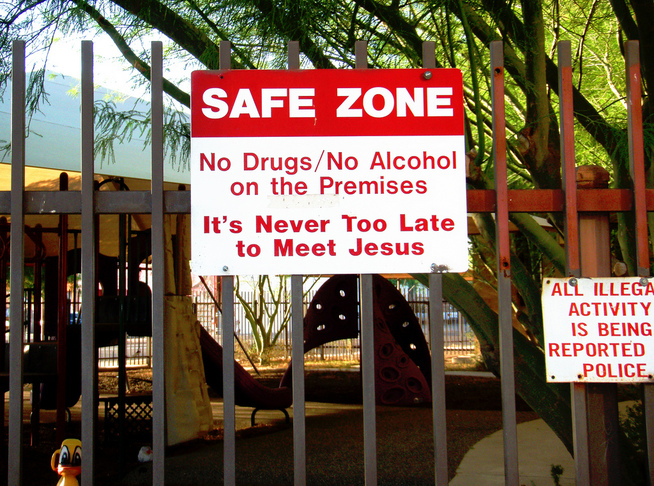Chris's messages are ageless and timeless, and each one is better than the last. I thought that you, dear readers, might like to hear his most recent, entitled "GPS: God's Provision of Salvation." It's based on John 14:6.
|
Each month, a few of us from church present a Christian Music Hour at the nursing home where I volunteer. In addition to singing 12 classic hymns with recordings by artists from Gordon MacRae to Tennessee Ernie Ford, we enjoy the loving, page-turning, chair-pushing assistance of the wonderful Carrillo family. And the highlight of the event is a custom-prepared message from the head of that family, Chris.
Chris's messages are ageless and timeless, and each one is better than the last. I thought that you, dear readers, might like to hear his most recent, entitled "GPS: God's Provision of Salvation." It's based on John 14:6.
0 Comments
I've always identified with Mistress Mary, Quite Contrary. Seems like whatever the subject, I'm prone to take the position opposite of whomever I'm reading or chatting with.
That was certainly true 15 years ago, when I was seeking the truth about God and had come to the question of Jesus Christ rising from the dead. At first I accepted His resurrection as fact, and as no big deal, because certainly lots of people had returned from the dead over the eons. Then, when my research revealed that resurrection really is unique in human history, with the very few claims of it recorded in the Bible, I decided that He had done no such thing -- that this was just another one of those religious delusions that get people all excited over nothing. I'm thankful that the Lord did not let me remain on the wrong side of this fence for long -- that He used a long, boring drive home from business meetings in Minneapolis to point me, once and for all, to the truth. I was nearing Menomonie, site of the University of Wisconsin-Stout, when I stumbled upon a radio program that grabbed my attention. Here's what happened, as I would later relate in my memoir, Heaven Without Her (Thomas Nelson, 2008): "I don’t know what station I’d found, or who the men speaking were, but they were talking about proofs for Jesus Christ’s resurrection. "(This, I would learn later, is not at all unusual for a Christian or Christian-in-the-making. Start wrestling with a spiritual issue and you’re bound to come across a pertinent discussion or illustration or analogy in very short order.) “'It seems,' said the first man – let’s call him Bud, 'that the eye-witness accounts that would become part of the New Testament were all written within a few decades of Christ’s death. Would you say that’s accurate?' “'Definitely,' said the second man, whom I’ll call Edgar. 'When these writings began circulating, there were still plenty of eyewitnesses around who could have sounded the alarm about any inaccuracies – just as there’d be an outcry if someone today claimed that aliens assassinated JFK. The risen Jesus had appeared to at least 500 people, after all. And yet neither the Bible nor contemporary historians mention any challenges to what’s written in Scripture about this particular event.' “'No one would accuse those historians of being under the control of the Christians,' Bud said. “'No, indeed,' Edgar said sadly. 'The early Christians weren’t exactly winning popularity contests. They were being persecuted and executed.' “'What about some of those alternate theories,' Bud said, 'those that say Christ didn’t really die on the cross, that sort of thing?' "Edgar then launched into a discussion of death by crucifixion, going into gruesome detail as he laid out the evidence that Jesus had most assuredly died on the cross that day nearly 2000 years ago, and had been buried in a rich man’s tomb. "I was beginning to lose interest. I’d read all of these things before, and convincing as they were, they still hadn’t erased all my doubts on this matter. The snow-draped countryside of northwestern Wisconsin was beautiful, and I let my mind wander for a while. I thought about the projects I’d just picked up in Minneapolis, and what the best approach might be to organizing all the information I was heading home with. "But suddenly peals of male laughter jarred me out of my mobile planning session. I turned my attention back to the radio, wondering what joke I’d missed. "They weren’t about to tell me. “'Ah, yes, that was good,' Bud said, his voice still bright with mirth. He cleared his throat. 'But seriously, tell me what in your opinion is the single most important piece of evidence that Jesus did, indeed, die on that cross and rise again three days later.' “'Hmmm, that’s a good question,' said Edgar. 'Well, I guess for me it would have to be the behavior of His disciples. Right after his death, they were one dejected group. And then suddenly, something happened that turned them into the most joyful and energized people you could imagine. They went out as Jesus had instructed and began to preach the Gospel all over the known world, in the process converting thousands of people to Christianity.' “'Something happened.' “'Yes. And as the years unfolded, all but one of them – the apostle John – died martyrs’ deaths, being stoned or crucified or stabbed or beaten to death. And that’s how we can know for sure that Jesus rose from the dead.' "He’d lost me there. I didn’t get it. "Apparently I wasn’t the only one. 'Explain that,' said Bud. "I was listening intently now, but I was beginning to lose the radio signal – it must have been a Minneapolis station I’d been tuned into, and the static was increasing at an alarming rate. "I then did something I hadn’t ever done before or since: To avoid losing another wisp of signal, I pulled off the highway and onto the shoulder, hoping that no state trooper would come along and interrupt Edgar’s response. I didn’t have to worry much about other travelers stopping to help; I hadn’t seen another car in at least a half hour on this huge highway in the middle of nowhere. “'The thing is,' Edgar was saying as I shifted into Park, 'people die for what they know to be the truth. They will even die for what is actually a lie, as long as they think it’s the truth. “'But no one dies for a lie.' "He let this point sink in for a moment before continuing. My heart was pounding; he was right. “'If Jesus hadn’t really been crucified, buried and resurrected,' Edgar said, 'if He hadn’t then appeared to them all as well as to hundreds of others – if in fact His disciples had invented this fantastic fiction about Christ rising from the dead – then they all died for what they knew was a lie.' "Silence, broken only by bits of static. “'And people simply do not die for what they know is a lie.' "I found myself fighting back tears. "Because this fellow had brought me to the brink of an utterly life-changing conclusion: Jesus Christ had died. "And Jesus Christ is risen." --From Heaven Without Her, pages 146-149. A couple days ago, I had a conversation with a woman who informed me, emphatically, that Christianity is all about loving everyone, and criticizing no one (except, apparently, biblical Christians). She’d been to a church service some time ago where the pastor had suggested that Buddhists were not necessarily heaven-bound, and she was so offended that she has not set foot in a church since then.
I had been under the impression that this woman was at least a professing Christian, but I guess I was wrong about that -- because her account was almost an exact replica of one of my own from my vehemently anti-Christian days: The first time I went [to a church] because of a deal I’d made with this hypothetical God. It was fall, and the Packers were in Texas, facing another humiliating defeat by the hated Dallas Cowboys. “I’ll give You a chance to prove Your existence,” I’d told Him the night before the big game. “I’ll go to church tomorrow morning. All I ask in return is a Packer victory in the afternoon.” I held up my end of the bargain by attending a jam-packed Sunday-morning service at this megachurch. In some ways, the service was a trip down Memory Lane. I hadn’t picked up a hymn book or tried to sight-read music since I was a kid taking piano lessons, and it gave me a bittersweet longing for my childhood. In other ways, the service was horrifying: an Asian man got up and spoke about how missionaries from this church had “saved” him from Buddhism. The arrogance of these Christians, I thought. Implying that their way was the only way and that people needed rescuing from other religions! Feeling persecuted on behalf of Buddhists everywhere, I headed home to watch the Packers lose to the Cowboys. (Heaven Without Her, page 83) It’s a good illustration, I think, of how very confused the lost are about Jesus Christ, about why He went to the cross, and about what His death and resurrection mean to us personally. So when this 21st century Buddhist apologist said almost exactly the same thing to me the other day, I found it pretty exciting to be sitting on the other side of the narrow gate. “I know exactly how she feels,” I thought, saying a quick, silent prayer for wisdom. “I just need to explain it to her. She’s smart, and she’s reasonable, and she’s very sweet, so this is a wonderful opportunity to share the gospel!” Alas, a few words into my explanation, she became irate. I tried again – same result. And again. “The Bible says,” I began. “The Bible was written by men!” she raged, not saying whether her objection was species or gender. “Men who were inspired by –“ “I don’t believe that!” she snapped, obviously disgusted by the very idea of inspiration. “But -- “I said I don’t believe that!” she hissed on her way out the door. I don’t know that anyone ever tried to reason with me from the Scriptures in my atheist days, as I’d hoped (and failed) to do in this little encounter. But I’m pretty sure that my response would have been just like this woman’s, and so many others I’ve tried to share the gospel with over the years – tolerant of everyone in the world except people armed with a Bible and a love of truth. In the end, all we can do is pray for those who are offended by our precious “stone of stumbling and rock of offense” (1 Peter 2:7), asking Him to do whatever it takes to soften their hearts while empowering us to respond without anger or even impatience. It's a tall order, but fortunately nothing is too hard for the Lord. Originally posted 4/27/14 "Jesus answered them, 'Most assuredly, I say to you, whoever commits sin is a slave of sin. And a slave does not abide in the house forever, but a son abides forever. Therefore if the Son makes you free, you shall be free indeed.'" --John 8:34-36
Legal and illegal drug epidemics are turning the U.S. into a nation of addicts, observes David Kupelian in a February 2014 Whistleblower article entitled "The Real Zombie Apocalypse." It's an outstanding article and a very frightening wake-up call that, unfortunately, will be heeded mainly by all the wrong people. Except for exposing how dire the situation really is, there aren't too many surprises in the piece. We all hear daily about celebrities going in for treatment, and many of us have friends or relatives who are even now trying to clean themselves up or dry themselves out with the help of various professionals. There's just one problem with all these efforts -- a problem described by Jesus in Matthew 12, when He talks about the unclean spirit leaving his "house" and then, thinking better of it, returning with seven friends even more evil than he is. "The last state of that man is worse than the first," Jesus concluded, adding, "So shall it also be with this wicked generation." And isn't that just what happens with most drug and alcohol treatment programs? They attempt to sweep the addict's house of "unclean spirits" (although of course they'd never accept this interpretation of the cause). And they replace those demons not with the only guaranteed remedy -- the Holy Spirit -- but with vague talk about getting healthy and respecting yourself. No wonder these programs so often fail so miserably. The Holy Spirit, on the other hand, has a 100% cure rate among those who give Him free rein to work in their hearts. Allow me to share my own experience: In John 8:36, Jesus is quoted as saying, “Therefore if the Son makes you free, you shall be free indeed.” It was in early 2002 that I had my first real experience of that freedom. I still smoked as much as humanly possible – three packs a day, more often than not. I still drank a lot, too; it was not unheard of for me to put away a six-pack of beer or a bottle of wine in a single evening. But I didn’t see this as a problem: Early on I had overheard a pastor telling another new Christian who smoked, “We expect you to be in prayer about it.” No problem – I could handle that. And in fact, I often mentioned to the Lord that anytime He wanted me to quit these little habits of mine, He should just say the word. I guess I never expected Him to take me up on it. Not that I actually heard Him say anything about it to me. But in mid-February of that year, in the midst of a prayer, I suddenly knew with dead certainty that it was time to lose both cigarettes and liquor. Even more amazing, I complied. Cold turkey. After 30-plus years of chain smoking and beer-guzzling, I became a teetotaling nonsmoker overnight. What’s nearly as remarkable, to me at least, is that my taste for alcohol vanished instantly. I still enjoy non-alcoholic beer (apparently verboten among secular alcohol-abuse programs, for some strange reason), and upon occasion someone has given me the real thing by mistake. Deep in conversation, I have taken a sip, and have had to literally spit it out – the taste is foul to me now. This is real freedom, in my book – the God-powered freedom to turn one’s back on even deep-seated behaviors in order to glorify Him instead of oneself. In my case, that meant being sober, as the apostles Paul and Peter repeatedly advised, and taking seriously Paul’s admonition that the Christian’s body is the temple of the Holy Spirit. There are those who would deny that giving up a pleasure could be called “freedom.” But the “do what thou willst” freedom they prefer leads to enslavement. Just ask someone who’s addicted to alcohol or drugs or gambling or exercise or gluttony or sex or self-importance or any of a thousand other out-of-control pleasures; if they’re being honest, they will not describe their ability to pursue their poisons of choice as freedom. “Freedom is slavery,” George Orwell said in his book 1984. Perhaps he was merely commenting on the propaganda he imagined would drive the totalitarian societies of the future. But it seems to me there’s a lot of truth to this slogan for a “free” society, even if Orwell didn’t realize it. --Heaven Without Her, pages 191-2 This story has a happen ending: I’m still free, 15 years later – free from both alcohol and, even more impressive, my long-standing tobacco addiction, which many experts agree is more difficult to break than crack cocaine. But I’m just one example of thousands upon thousands who’ve been set free by the Lord. After all, for the Christian, "He who is in you is greater than he who is in the world" (1 John 4:4). Happily, there are some addiction specialists who use these truths to set hard-core addicts forever free from their bondage. Updated from a 3/8/14 post "Perhaps not so coincidentally, my resolve to search out the unvarnished truth would be tested just a few months later, as I began investigating my mother’s [Christian] faith.
"Once again, I was being forced to consider the possibility that something I had long refused to believe might actually be true. "In the very early going, I kept stumbling over my virtual certainty that my mother’s religion was ugly and prudish and intolerant; that it was arrogant beyond belief with its claims of absolute and exclusive truth; and that it starred a Creator who, if He existed, took great pleasure in giving His creatures good things like food and drink and money and sex and then telling them 'Hands off!' "These were among the reasons I had developed my own little theological system over the decades – one that could be adjusted whenever necessary to accommodate some fun idea put forth in a conversation or book or even a movie like the too-cool afterlife fantasy 'What Dreams May Come,' with its resident-run, 'they all lived happily ever after' portrayal of heaven. "Even though I was sort of leaning towards the existence of a God by the mid-1990s, my personal theology certainly didn’t depend on such a being. Mine was a passive-tense theology: We were put here to reach our full potential as human beings. We would be judged based on our characters and good deeds. Those who were allowed into heaven (if it existed) would include just about everyone except Adolf Hitler and Christian fundamentalists. "If I didn’t want to address the issue of who, if anyone, would do the putting, judging and allowing, well, that was my business; it was my afterlife scenario, after all. And it was just as valid as anyone else’s, because no one could possibly know for sure what happens to us after we die. No one." --From Heaven Without Her (Thomas Nelson, 2008), pages 94-95 Have you ever noticed how experts like to take perfectly innocent words, strip them of their original definition, and give them entirely new meanings? We see it fairly often these days. Sadly, it’s sometimes so subtle that even a careful reader can miss it; yet it can change our thinking dramatically, especially about the most important questions in life.
Take, for example, the word “foreknow” in its various forms. Romans 8:29 tells us, “For whom He foreknew, He also predestined to be conformed to the image of His Son …” And 1 Peter 1:1-2 says, “Peter, an apostle of Jesus Christ, To the pilgrims of the Dispersion …, elect according to the foreknowledge of God the Father, in sanctification of the Spirit, for obedience and sprinkling of the blood of Jesus Christ …” What did Paul and Peter mean? Most reasonable readers would conclude that they were both referring to people predestined or elect based on God’s foreknowledge of them – because of what their omniscient and eternal Creator knew about them long ago. It’s similar to what a novelist knows about his or her characters well before the details begin to play out on paper – except that God’s knowledge of His creatures is absolutely perfect and absolutely complete, whereas fictional characters can and do surprise their creators. Most reasonable readers would, in fact, feel comfortable applying a simple dictionary definition of “foreknow” to such passages. For example:
But hold on! If you think “foreknow” means much more than these simplistic definitions indicate, cheer up – you’re far from alone. “To foreknow means to choose beforehand,” explains prolific writer Warren Wiersbe on page 117 of his 2002 book Key Words of the Christian Life, “to set your love upon someone…. God in His grace sets His love upon certain ones who are going to be saved.” My goodness – that’s certainly a New! Improved! definition of “foreknow,” isn’t it? For readers bored by the basics, it adds a ton of bonus information! But Wiersbe isn’t the only one who has dolled up the meaning of this simple word. For instance, a lecturer I heard recently insisted that “foreknowledge” doesn’t mean that God looked down at us through the tunnel of history. “It means that you are dead in your sin until God makes you alive,” she insisted, drawing on Ephesians 2:1 to embellish this apparently too-dull word. Hmmmm. If we can add to the meaning of words by pulling in other remotely related scriptural concepts, might we conclude that “foreknowledge” means the Lamb of God takes away the sin of the world, based on John 1:29? Or that He draws all men, per John 12:32? And there’s more. “When the Bible speaks of God knowing particular individuals,” www.monergism informs us in a “foreknowledge” definition requiring over 2100 words, “it often means that He has special regard for them, that they are the objects of His affection and concern.” In other words, “He only knows those ‘who love Him, who are called according to His purpose,” per these authors, neatly piling on thoughts from Romans 8:28 to further our understanding of “foreknowledge.” The nearly ubiquitous MacArthur Study Bible would seem to agree. “[Foreknowledge] does not refer to awareness of what is going to happen, but it clearly means a predetermined relationship in the knowledge of God,” says the note on 1 Peter 1:2 in this volume, which has shaped the thinking of so many Bible students over the years. Of Romans 8:29, this same book says “foreknew” is “not a reference simply to God’s omniscience – that in eternity past He knew who would come to Christ. Rather, it speaks of a predetermined choice to set His love on us and establish an intimate relationship – or His election.” And so on. Google the word “foreknow,” and you’ll find well over 100,000 entries, with gobs of them explaining why “foreknow” does not really mean “foreknow.” Seems like these commentators have gone to a lot of effort to strip this one little ol’ word of its original meaning and gussy it up in layers of cross- and extra-biblical thinking. I realize that defenders of this approach claim that these embellishments must be made to dovetail with other passages; but the truth is, one runs into the same issues with these other passages, too, until we're left in a fog of completely unnecessary confusion. I guess the moral of this story is this: Be Bereans (Acts 17:11); if you want to know what God has to say on any given subject, go directly to His word. Be wary of adding to or taking away from what He has said (Revelation 22:18b-19). Ask questions about what you’re reading, such as "who's the audience?" ... "whom is the writer talking about?" ... “based on what criteria?” ... and “for what purpose?” In short, “as newborn babes, desire the pure milk of the word, that you may grow thereby” (1 Peter 2:2). And beware of any additives that threaten to taint it. |
Kitty
|






 RSS Feed
RSS Feed